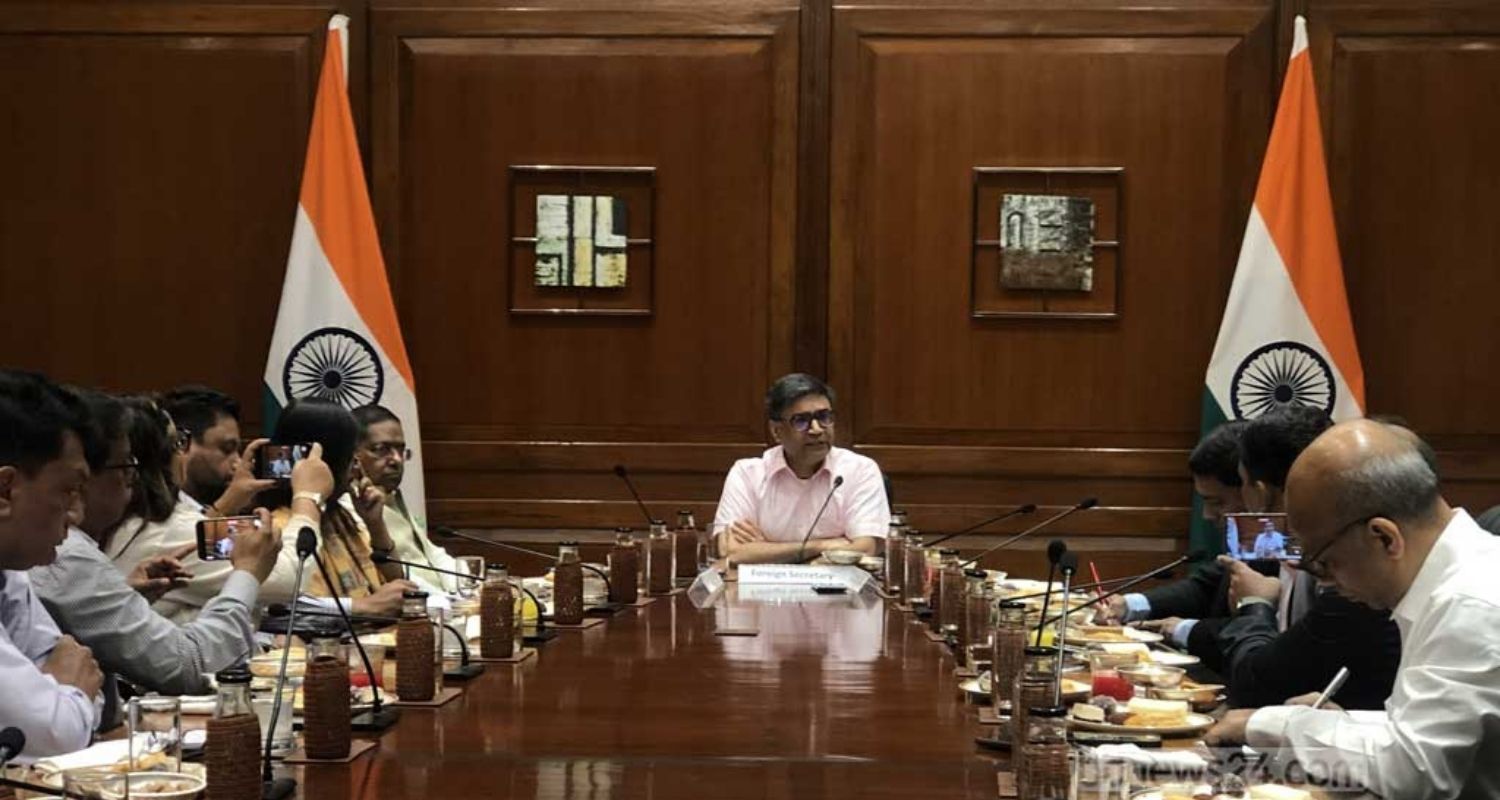Indian Foreign Secretary Vikram Misri on Monday announced that India will collaborate with whichever government comes to power in Bangladesh following the country’s general election scheduled for February 2026.
Speaking at a meeting with the Diplomatic Correspondents Association of Bangladesh (DCAB) in New Delhi, Misri emphasised India’s support for a “free, fair, inclusive and participatory” electoral process in Bangladesh, urging that the elections be held at the earliest possible time.
“I want to be very, very clear on this one matter, if there is any doubt in anybody's mind: India is firmly in favour of free, fair, inclusive, and participatory elections in Bangladesh, and it is in favour of these elections being held at the earliest possible time,” Misri stated.
He expressed encouragement at the Bangladesh authorities’ announcement of a timeline for the elections, adding, “We are encouraged by the fact that Bangladesh authorities themselves have spoken about a time frame for these elections, and we would look forward to these elections taking place.”
The political landscape in Bangladesh has seen significant upheaval since a student-led uprising in July 2024 ended the 15-and-a-half-year rule of the Awami League. Former Prime Minister Sheikh Hasina has been residing in India under the protection of the Indian government since August 2024.
Meanwhile, numerous Awami League leaders and activists are believed to have sought refuge in India as the interim government in Bangladesh pursues legal action against those accused of violence during the July uprising. In May 2025, the interim government banned the activities of the Awami League, citing ongoing trials at the International Crimes Tribunal for alleged offenses, including “killings, enforced disappearances, arson, torture, looting, and crimes against humanity” during the uprising. This ban will remain in place until the trials are concluded.

When questioned about the feasibility of a participatory election given the Awami League’s ban, Misri refrained from commenting on Bangladesh’s internal decisions, stating, “Look, I obviously cannot get into the middle of decisions that are made by authorities in Bangladesh. I think the Bangladesh authorities, the people of Bangladesh, civil society in Bangladesh, have to make that overall assessment as to what is the view of these elections that will be taken outside as well.”
He underscored the importance of both internal and external legitimacy for the electoral process, noting, “It's not just a question of internal legitimacy, it's also a question of external legitimacy.” Misri emphasized that the people of Bangladesh will ultimately determine the credibility of the electoral process.
Addressing whether India would recognise a government formed through an election excluding a major party like the Awami League, Misri reiterated, “We will work with any government that emerges through the mandate of the people of Bangladesh. There is no doubt that a certain mandate will be expressed through these elections. When it comes to some of the conditions that will shape that mandate, as I said, I will, you know, India will not get into that.”
Also Read: US think tank behind Nepal, B’desh protests: Indian intelligence
On the issue of Sheikh Hasina’s potential return to Bangladesh, which some view as a hurdle in advancing bilateral relations, Misri described it as a matter requiring careful consideration, saying, “This is a judicial and legal process. It requires engagements and consultations between the two governments. We are examining these issues. We look forward to working together with Bangladeshi authorities on these issues. Beyond that I don’t think it would be constructive to say anything further at this moment.”
Misri also addressed perceptions that India is attempting to rehabilitate Hasina and the Awami League in Bangladeshi politics, firmly rejecting the notion. He clarified, “We are only in favour of early election in Bangladesh for an opportunity for the people of Bangladesh to express themselves, give their mandate, and popularly elect the government. We are prepared to deal with that government. I don't think there is anything else to say with regards to that.”
Misri noted that India has maintained communication with Bangladesh’s interim government from the outset, highlighting that Prime Minister Narendra Modi was among the first global leaders to welcome Chief Advisor Muhammad Yunus, despite the interim government’s lack of constitutional definition. The statement underscores India’s commitment to fostering strong bilateral ties with Bangladesh while respecting its democratic processes and supporting a transparent and inclusive electoral framework.
Also Read: Violence in Bangladesh leaves three tribal people dead



